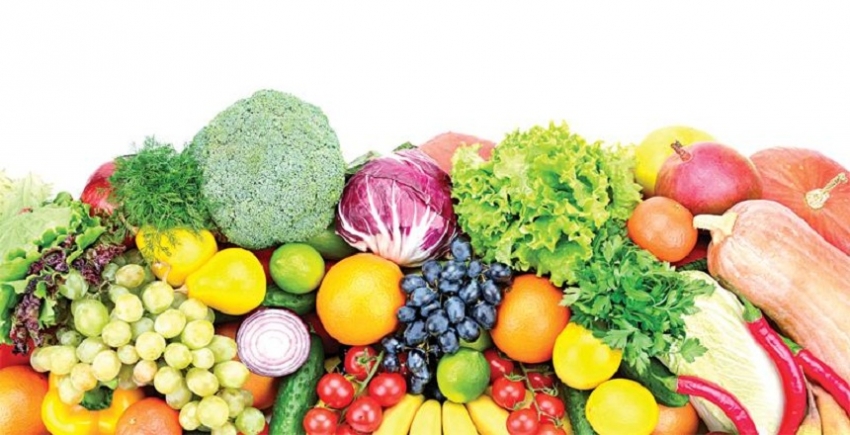Consumers can expect the high vegetable prices to stabilise between February 20 and 25 as low country farmers harvest their crops, Director of the Hector Kobbekaduwa Agrarian Research and Training Institute, Duminda Priyadarshana saidOn Friday (24), wholesale prices at the Pettah Market showed the effects of the torrential rains that wreaked havoc in most parts of the country over the past months. A kilo of beans was sold at Rs. 200-220, carrot Rs. 360-400, leeks Rs. 220-250, beet root Rs. 100-120 and tomato went at a price as high as Rs. 360-380.
Meanwhile low country vegetables saw a gradual decrease with a kilo of ladies fingers going at Rs. 130-150, brinjals Rs. 90-100, capsicum Rs. 280-320 and pumpkin Rs. 90-110.Priyadarshana said this was not an unnatural phenomenon as annually the year end rains damaged crops, but this year it was worse as both low and up country vegetation were affected.
This result can be observed on the difference of the vegetable prices this January compared to the same time period last year. On January 24, 2019 the whole sale prices at the Pettah Market per kilo of beans was Rs. 80-110, carrot Rs. 60-80, leeks Rs. 60-80, beet root Rs. 60-70 and tomato Rs. 50-70, while ladies fingers was Rs. 60-80, brinjals Rs. 75-80, capsicum Rs. 120-150 and pumpkin Rs. 15-25.
The situation is predicted to improve with the harvest of more low country crops especially from Jaffna, Priyadarshana said.“The prices are not that bad other than for a few vegetables like carrots and beans. I can’t complain,” sad Ranjith de Silva (52), a father of three who was shopping in the Manning Market in Pettah.He added that this was also a good time for farmers because vegetables are fetching a high price now. “ It’s the only time they can make a profit,” he said
He said this as H. W. Sanath, a 56-year-old vegetable seller at the Manning Market, looked on. Several of Sanath’s potential customers passed on after inquiring about vegetable prices. “Sales are very poor. We are actually spending our own money to come to sell vegetables instead of making profit,” he said.The situation has left many households to temporally amend their diets to cheaper alternatives. A. G. Dhammika, a 47-year-old home maker from Slave Island who is also a mother of three said that they are buying more dhal and green gram as an alternative to vegetables.
To ease the burden on consumers the government took several measures. One such program, taken by the Ministry of Railway Services, was the sale of 10 different varieties of vegetables at a concessionary price. The program that commenced on January 02 saw many commuters at Fort and Maradana railway stations welcoming this move.In the meantime, tax on potatoes and big onions were slashed by Rs. 50 per kilo. A kilo of imported onions on Friday (24) was Rs 70-100. A kilo of local onions, however was Rs. 550.
“The prices have already started to reduce. We are hopeful,” vegetable vendor Mahesh Kumara said. The 27-year-old has been selling vegetables with his brother for the past ten years. “This is the first time prices increased to this magnitude,” he said.
Manager of the Meegoda Economic Centre Prashan Rajapaksha said it will take time, at least a month, for the vegetable prices to stabilise.Wholesale prices of fruits were comparatively lower than last year. On Friday a kilo of of ambul (banana) was Rs. 40-60, seeni Rs. 50-70, papaya Rs. 60-80, avocado Rs. 38-60, and woodapple Rs. 22-30. Last year during the same time a kilo of ambul was sold at Rs. 50-60, seeni Rs. 50-70, papaya Rs. 160-220, avocado Rs. 80- 110 and woodapple Rs. 15-20.
The government is looking at ways to eliminate unnatural vegetable price hikes made by middlemen, State Minister of Internal Trade Anura Priyadarshana Yapa said.The minister explained that ‘middlemen’ buy from the farmer and sell the vegetables to the consumer at a much higher rate taking the scarcity of vegetables as an advantage.The torrential rains that swept across the country damaged crops and vegetable plots resulting in the sky-rocketed prices.
“Now these prices are gradually coming down, other than for a few upcountry vegetables,” Minister Yapa said.President Gotabaya Rajapaksa has instructed relevant authorities to take necessary action to ease the burden on consumers.“While doing this we also have to look at the market factor. We have to consider the effects on both the consumer and farmers,” Minister Yapa said.He predicts that the prices will stabilise in two weeks.




















